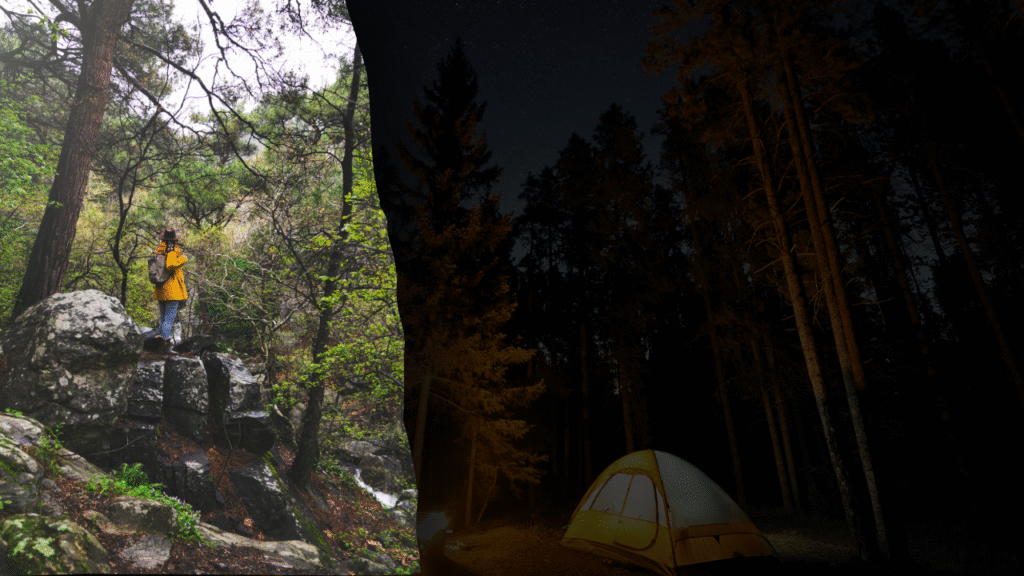The Allure of Solo Hiking
Solo hiking is more than just an outdoor activity; it's a journey of self-discovery and empowerment. Embarking on a solo hiking trip allows you to connect deeply with nature, challenge your limits, and experience a profound sense of accomplishment. Whether you're seeking personal growth, a digital detox, or simply a break from the hustle and bustle, solo hiking offers a unique and enriching experience.

The Transformative Benefits of Solo Hiking
1. Personal Growth and Self-Discovery
Solo hiking provides an opportunity for introspection and self-reflection. Without the distractions of daily life, you can tune into your thoughts and emotions, leading to greater self-awareness and personal growth. This journey often leads to a deeper understanding of oneself and one's place in the world.
2. Enhanced Confidence and Independence
Navigating trails alone builds self-reliance and resilience. Each challenge faced and overcome boosts confidence, reinforcing the belief in one's abilities. This sense of independence gained on the trail often translates into other areas of life
3. Physical and Mental Health Benefits
Hiking is a full-body workout that improves cardiovascular health, strengthens muscles, and boosts the immune system. The rhythmic nature of walking and the immersion in nature also reduce stress and anxiety, promoting mental well-being.
4. Connection with Nature
Solo hiking allows for an uninterrupted connection with the natural world. Without the presence of others, you can fully immerse yourself in the sights, sounds, and smells of the environment, fostering a deeper appreciation for nature's beauty.
Tips for Solo Hikers
Plan Ahead
Before heading out, it's crucial to thoroughly research the trail you intend to hike. Understand the route’s difficulty, total distance, elevation gain, and estimated time to complete. Check recent trail conditions and study maps to familiarize yourself with landmarks and potential hazards. Choose a trail that suits your fitness and experience level, and always check the weather forecast to avoid extreme conditions. Download offline maps and make sure your phone or GPS device is fully charged.
Inform Someone
Always let a trusted friend or family member know your hiking plans. Share details like the name of the trail, your start time, estimated return time, and the location of your car. Set a specific time to check in with them once you’ve completed your hike. In case of an emergency or delay, they’ll know when and how to seek help. Leaving a note with your plans on your vehicle dashboard is another helpful precaution.
Pack Light and Smart
Carrying the right gear can make a huge difference in both comfort and safety. Essentials include a map, compass or GPS, first aid kit, sufficient water, energy-rich snacks, a multi-tool, and a headlamp or flashlight with extra batteries. Dress in moisture-wicking layers and pack rain gear regardless of the forecast. Include an emergency blanket or bivy sack, a whistle for signaling, and a portable water purifier. Every item should serve a clear purpose avoid unnecessary weight.
Stay on Marked Trails
Wandering off designated trails increases your risk of getting lost, damaging fragile ecosystems, or encountering unsafe terrain. Stick to marked paths and keep an eye out for trail signs, blazes, or cairns. If you ever feel unsure of your direction, backtrack to the last clearly marked spot. Resist the urge to take shortcuts or explore side trails when hiking alone.
Trust Your Instincts
Your instincts are one of your most powerful safety tools. If something doesn’t feel right, whether it's a sudden change in weather, feeling fatigued, or an uneasy encounter, don't hesitate to turn around or seek help. There's no shame in ending a hike early if it means avoiding unnecessary risk. Solo hiking requires you to be especially tuned in to your surroundings and your limits.
Respect Nature
Practicing Leave No Trace principles helps preserve nature for others and protects wildlife. Pack out everything you bring in, including food waste and biodegradable items. Stay on durable surfaces to minimize your impact, and never disturb plants or animals. Avoid loud noises to keep the environment peaceful for both wildlife and fellow hikers. If you need to relieve yourself outdoors, do so at least 200 feet from water sources and trails, and bury waste responsibly or pack it out when required.
Popular Solo Hiking Destinations
Appalachian Trail
The Appalachian Trail stretches over 2,000 miles from Georgia to Maine, offering solo hikers a diverse mix of forests, mountains, and valleys. It’s popular for its well-marked paths, shelters, and a helpful hiking community. Ideal for spring hiking trips, the trail is both scenic and challenging, perfect for those seeking self-discovery journeys. Outfitters like REI Adventures offer guided options to book solo hiking tours safely.
Art Loeb Trail
Located in North Carolina, the Art Loeb Trail is about 30 miles long and known for tough climbs and panoramic views. It's best for experienced hikers seeking solitude and independent travel. This trail offers rugged wilderness, ideal for those wanting the full benefits of solo hiking trips. Spring and fall are the best seasons to visit.
Local Trails (Hiking Trails Near Me)
Local trails are perfect for beginners or quick getaways. Well-maintained and accessible, they let you enjoy the outdoors with less risk. These nearby paths are great for practicing solo hiking skills and building confidence. Many parks and reserves offer routes perfect for short solo travel experiences, helping you grow into longer adventures over time.
Conclusion: Embracing the Journey
Solo hiking is more than just walking alone in nature; it's a journey toward self-discovery, personal growth, and true independence. By stepping into solitude, you allow yourself space to think clearly, build confidence, and reconnect with what truly matters.
Whether you choose a local trail or take on a major route like the Appalachian Trail, each step you take brings physical strength and mental clarity. These adventures offer the real benefits of solo hiking trips, from improved focus to emotional healing.
If you're looking to book solo hiking tours, trusted brands like REI Adventures offer guided experiences that support both safety and freedom. Whether it’s part of your spring hiking trips or a spontaneous weekend plan, solo travel in nature brings peace and purpose.
From quiet mornings on the trail to moments of triumph at the summit, every solo hike is a chapter in your own story, a story of courage, growth, and discovery. So, explore hiking trails near me, pack your gear, and take that first step into a meaningful journey.
Solo hiking is waiting. And it’s all yours to experience.







